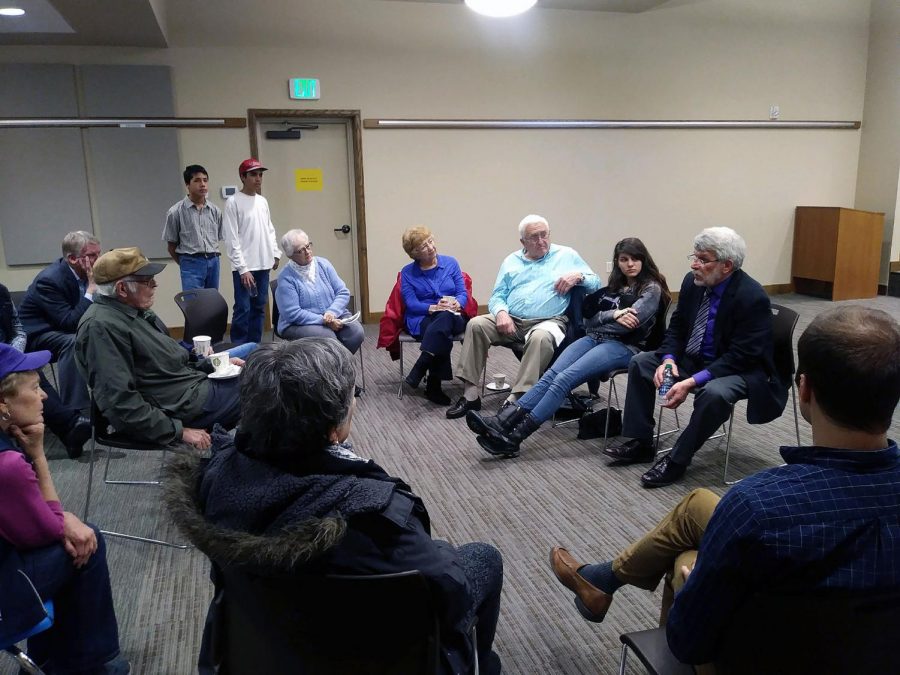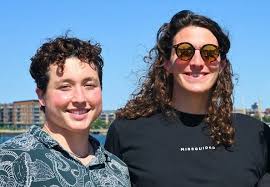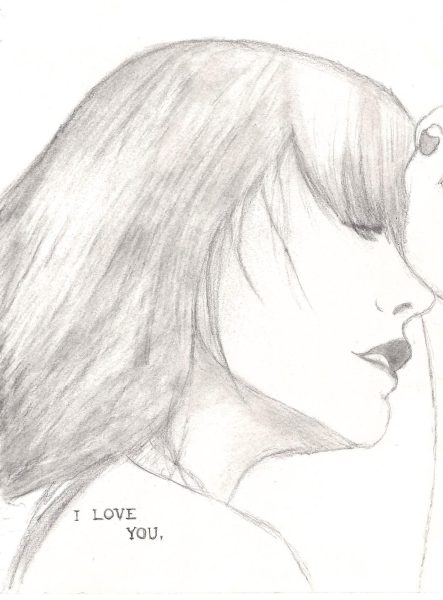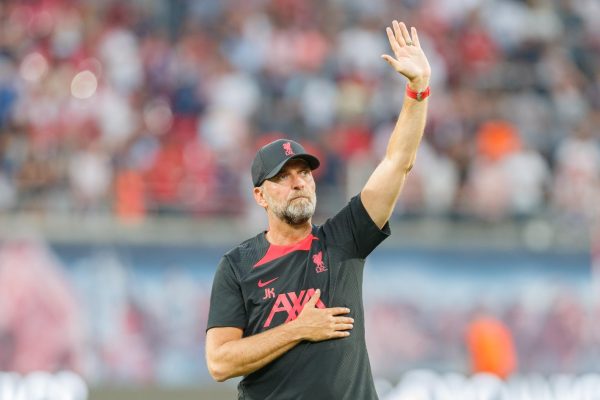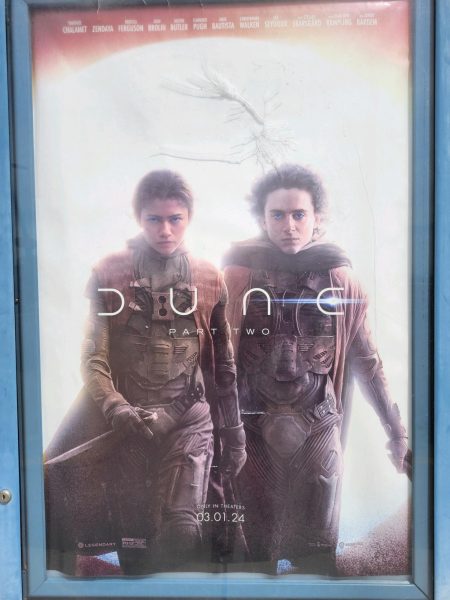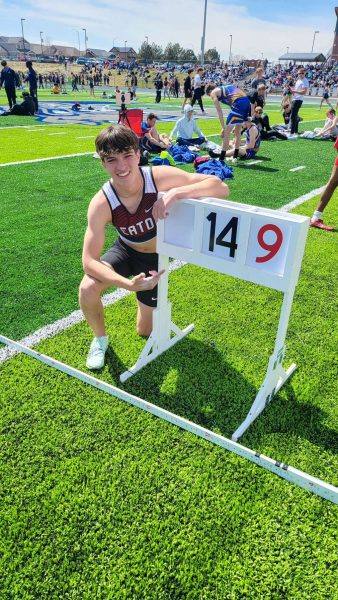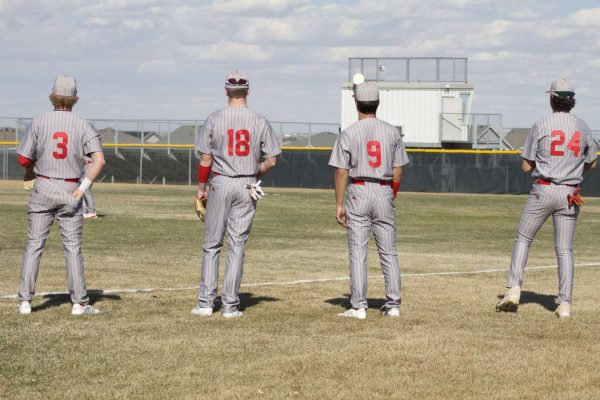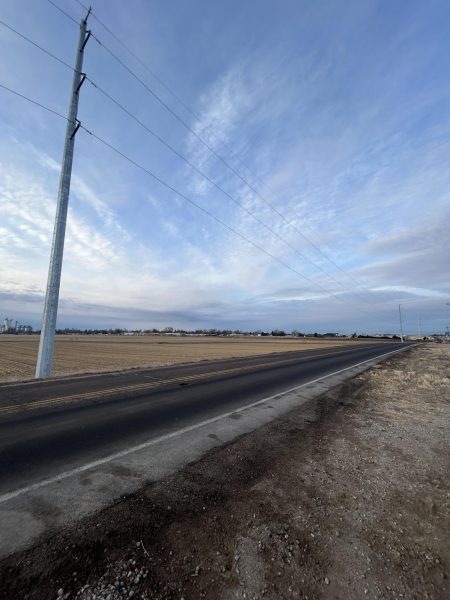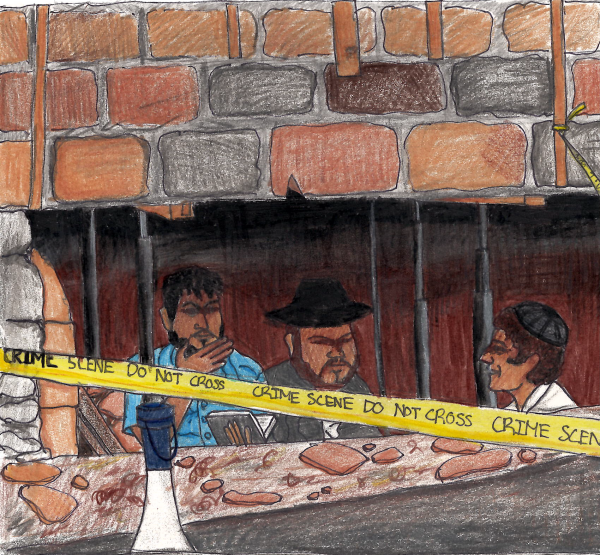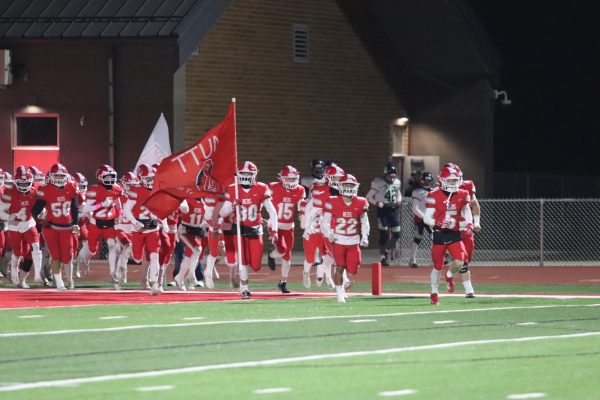Peter Gorog sheds light on Holocaust
Keynote speaker Peter Gorog (born Péter Grünwald) spoke to the student body about his experiences during the Holocaust on April 11.
Gorog was born in Budapest, Hungary in 1941. The persecution of his family (and many Hungarian Jews) began in 1920 with the Numerus Clausus Act, which restricted the number of Jews who could be admitted into higher education.
After his father’s death, Gorog’s mother, Olga, supported her family through hat-making until German forces invaded Hungary in March 1944. The Hungarian government then ordered the Jews to relocate into segregated housing, prompting Olga and Gorog, then four years old, to take refuge with a Christian friend. After a neighbor discovered them, Olga was taken by authorities but escaped two days later and secured an apartment under the protection of diplomat Raoul Wallenburg.
In January 1945, the Soviet Army finally liberated Budapest, ending the ongoing persecution of the Gorog Family. In 1980, Gorog moved to the United States, where he has participated in numerous NASA projects, including the upcoming James Webb Space Telescope. Gorog retired in 2014 and is now a volunteer at USHMM.
According to the United States Holocaust Memorial Museum (USHMM), Raoul Wallenburg was known for his rescue efforts to save the Jews from persecution during the Nazi Era. He created 30 “safe-houses,” one of which housed Olga and Gorog for seven months. Gorog said “I still have faith in humanity because there were some bad people during the Holocaust, but then there were good people, too.”
Gorog said that forgiveness is a touchy subject in relation to the Holocaust; the Nazis were relentless in their extermination of “non-people.” Gorog said that even though the Abrahamic religions: Judaism, Islam, and Christianity, encourage forgiveness of their enemies, he believes, “forgiveness is often interpreted in the wrong way, and it requires acceptance of everything the Nazis have done.” For that reason, he said “I cannot forgive the Nazis because of all they have done to my family.”
The keynote was given in conjunction with the Human Dignityunit, in which freshman learn about the Holocaust and its impact on all walks of life. They read books, such as Elie Wiesel’s Night and Art Spiegelman’s Maus, that retell the author’s experiences of the Holocaust, and create a variety of projects based on the topic of preserving human dignity.
“We have to interact with all sorts of people for the rest of our lives,” says Jaryn Guerra, teacher of the Human Dignity unit. “It would be good to get an understanding of everyone’s lives before we judge them.” Antonio Porras (20) reflected on the unit, saying “the unit gets a feel for how we should treat other people because we don’t often understand everyone’s life stories.”



